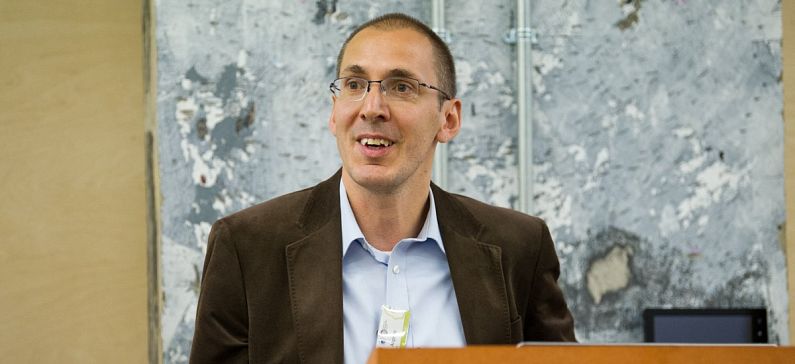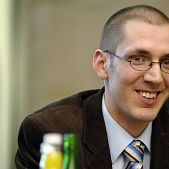
Develops methods to study processes of relevance to catalysis
Angelos Michaelides is Professor in Theoretical Chemistry at University College London (UCL) and co-director of the Thomas Young Centre (TYC).
Research in his team aims at understanding important phenomena in surface- materials- and nano-science. Using concepts from quantum mechanics and statistical mechanics, his team applies and develops methods and computer simulations to study processes of relevance to catalysis – such as the properties of metal surfaces and chemical reactions at surfaces – and processes of environmental relevance – such as the nucleation of ice or the dissolution of salts. Water and ice are major focuses of their work.
He obtained a PhD in Theoretical Chemistry in 2000 from The Queen’s University of Belfast. Following this he worked as a post-doctoral research associate and junior research fellow at the University of Cambridge and then at the Fritz Haber Institute, Berlin, as an Alexander von Humboldt research fellow. Subsequently he was promoted to staff scientist and research group leader at the Fritz Haber Institute. In 2006 he moved to University College London, where since 2009 he has been Professor of Theoretical Chemistry.
Angelos Michaelides participated in a new research by UCL and Tufts University, according to which, methane in shale gas can be turned into hydrocarbon fuels using an innovative platinum and copper alloy catalyst. The study, published today in Nature Chemistry, demonstrates the benefits of the new highly diluted alloy of platinum in copper – a single atom alloy – in making useful chemicals from small hydrocarbons.
Two more Greeks participate in the research team. Professor Michail Stamatakis (UCL) and Distinguished Professor Maria Flytzani-Stephanopoulos (Tufts University).
He has received a number of honors and awards for his research including the Royal Irish Academy Young Irish Chemist of the Year (2000), a visiting professorship at École Normale Supérieure de Lyon (2004), a European Young Investigator Award (2005), a European Research Council (ERC) Startup Grant and an ERC Consolidator Grant, and a Royal Society Wolfson Research Merit Award (2012). He was also the 2010 recipient of the Royal Society of Chemistry Marlow Award “For his innovative contributions in broad areas of surface and physical chemistry, with particular relevance to heterogeneous catalysis and improved understanding of the water-ice interface”. In 2012 became a Fellow of the Royal Society of Chemistry.
Since 2011 has been Director of the Thomas Young Centre and since 2013 he has been an Associate Editor of the Journal of Chemical Physics.











